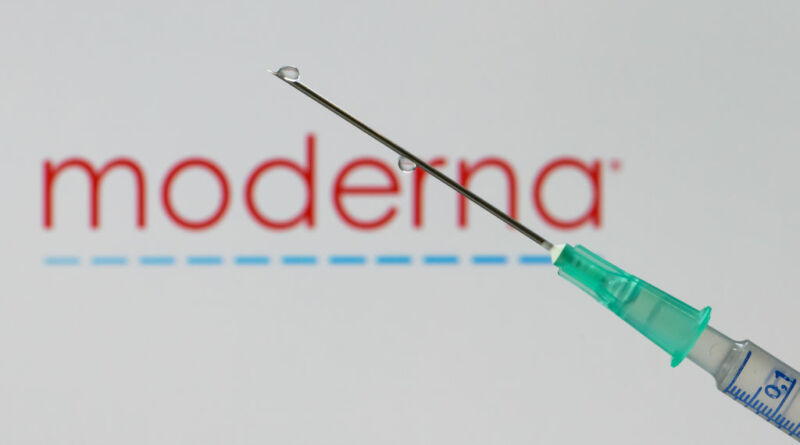As COVID vaccine patent dispute drags on, Moderna forks over $400M to NIH

Enlarge (credit: DeFodi Images )
Vaccine maker Moderna has forked over $400 million to the National Institutes of Health for using a molecular stabilizing technique borrowed from government and academic researchers in its mRNA-based COVID-19 vaccine-which the company made roughly $36 billion selling amid the deadly pandemic, according to The New York Times.
Moderna mentioned the payment in the company's latest earnings report, which described the sum as a "catch-up payment" negotiated with the NIH in December as part of a new royalty-bearing license agreement. The agreement will also grant the NIH "low single-digit royalties on future COVID-19 vaccine sales." The company expects to make around $5 billion in COVID-19 vaccine sales in 2023.
The molecular technique at the center of the agreement is designed to stabilize the SARS-CoV-2 spike protein so that it can spur a strong immune response following vaccination. The mRNA-based vaccine delivers genetic code for the spike protein, which is then translated by human cells into protein. Researchers at the NIH's National Institute of Allergy and Infectious Diseases (NIAID)-as well as collaborators at Dartmouth and The Scripps Research Institute in La Jolla, California-came up with a method of tweaking the mRNA code so that, when translated, the spike protein would stay locked in a specific conformation best for generating an immune response. They had developed the technique years before the pandemic, publishing it in a 2017 study involving the spike protein from a SARS-CoV-2 relative, MERS-CoV, aka the Middle East respiratory syndrome coronavirus. Moderna began collaborating with the NIAID on a general design for mRNA-based vaccines in 2016, but none of its scientists were authors of the 2017 paper.